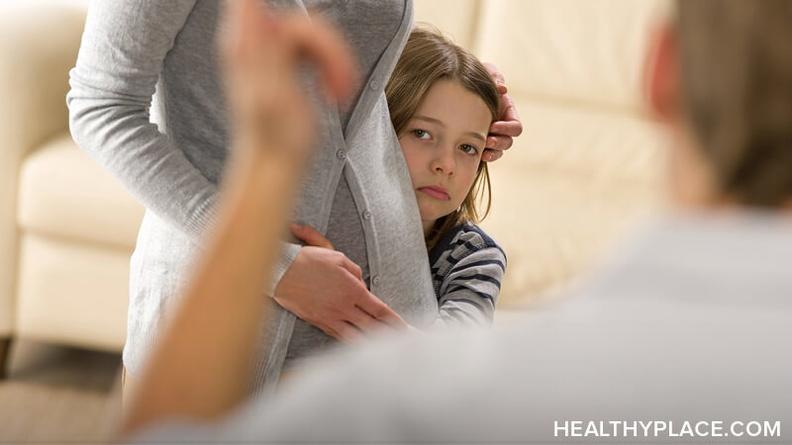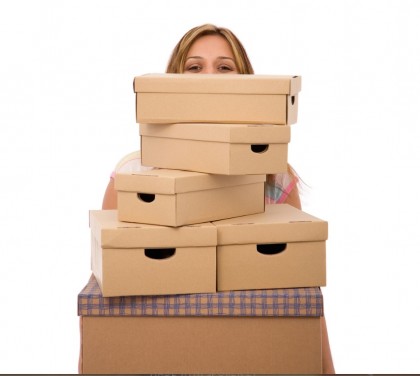Codependency in Families with Mental Illness and Addiction

Mental illness and addiction runs through my family alongside codependency. Mental illness is hereditary, flowing through families, from parent to child, from uncle to nephew. Where there is mental illness in a family there is a heightened instance of addiction (Substance Abuse and Mental Illness). But we don't acknowledge enough that where there is mental illness and addiction in families, codependency is often passed down as well.
Mental Illness in Families Often Coexists with Addiction
I was a member of a family with mental illness long before my bipolar symptoms began to surface. Addiction and suicide trace back through both sides of my family line, before my eccentric general contractor/cowboy grandfather, whose moods swung from giddy to violent, would have been diagnosed bipolar. Un-medicated, he struggled through life and did the best he could (Medicating Mental Illness). But struggles affected subsequent generations and they found mental illness, addiction, and codependency passed down to them, too.
Robert Burney defines codependence as,
Codependence is characterized by dependence on outer or external sources for self-worth and self-definition. This outer or external dependence . . . cause the Codependent to live life in reaction to, give power over self-esteem to, outside sources (Codependence Defined).
Wikipedia defines a codependent relationship as,
a type of dysfunctional helping relationship where one person supports or enables another person's addiction, poor mental health, immaturity, irresponsibility, or under-achievement. Among the core characteristics of codependency, the most common theme is an excessive reliance on other people for approval and identity.
The generations before me managed to cope with their parents’ addictions and mood swings by becoming codependent. They believed that if they were good enough, they could affect the behavior of their parents. They believed if they appeared to have it altogether, then no one would see what was really going on at home. They continued this pattern into their adult lives, unwittingly passing on a genetic disposition for mental illness and their learned coping behaviors to me. So, I inherited bipolar disorder and learned how to be a codependent.
Mental Illness and Addiction in Families Breeds Codependency
Growing up in a family with mental illness and addiction, I assumed from a very young age that I had a part to play in the dysfunction. I adopted a very black and white thinking process of codependency. I believed that if I was very good, very stable, and very dependable, that I could minimize the problems in my family. So, as a young girl, I tried to follow every academic, familial, and religious rule in order to measure up. My sense of worth became entirely dependent upon my ability to adhere to these external measurements.
Robert Burney, in his article Codependence and Self Worth, writes about how we are taught to be codependent:
Not only were we, as codependents, taught to be victims of people, places, and things. We were taught to be victims of ourselves, of our own humanity. We were taught to take our ego-strength, our self-definition from external manifestations of our being . . . We were taught to do it backwards. To take our self-definition and self-worth from temporary illusions outside of, or external to our beings. It does not work. It is dysfunctional.
When I became ill with bipolar disorder, I could no longer follow the rules. I could no longer measure up to the strict standards I held myself to. I could no longer take responsibility for others' thoughts, feelings, and actions because I could not control my own. In the course of one manic break, I broke all of the rules. My entire way of measuring my self-worth came crashing down. As I worked at treating my bipolar disorder, my codependent thinking had to be addressed as well. I had to find a self-definition that was not dependent on how I performed.
Mental Illness, Addiction, and Codependency All Require Treatment
Like all comorbid addictions, I treat both my bipolar disorder and my codependency. Even though I'm not an alcoholic, working the 12 steps has proven incredibly helpful for me. Realizing my powerlessness over bipolar disorder and codependency allows me the ability to put my trust in a Higher Power instead of myself, to find my true value, and work the steps toward recovery (Three Ways the 12 Steps Help Besides Addiction Relief).
The biggest piece of my becoming healthy lies in my ability to see my worth as an intrinsic part of who I am. I am working to value myself as a multi-dimensional human being instead of a black and white report card. In every step I take to heal my codependency, I find that my bipolar disorder improves as well.
If you come from a family with mental illness and you, too, struggle with codependency, know that you’re not alone. You are more than these burdens you carry. Your worth lies within you, more than your family with mental illness, your mental illness, addiction, and codependency.
Codependency in Families with Mental Illness and Addiction Need Help Too
Connect with Taylor on Facebook, Twitter, Pinterest, Google+, and her blog.
APA Reference
Arthur, T.
(2016, April 27). Codependency in Families with Mental Illness and Addiction, HealthyPlace. Retrieved
on 2026, March 5 from https://www.healthyplace.com/blogs/mentalillnessinthefamily/2016/04/codependency-in-families-with-mental-illness-and-addiction
Author: Taylor Arthur
Carey, I believe you can care about your siblings but keep them at arms bay. Do not allow them to take control of your feelings and do not let them coerce you into feeling that you need to pay attention to them when they pay you no attention. Just remember this - God gives us one life, to take care of our selves first and then others. This time in your life is now the time to focus on you!!!! Look around you at all the beauty that is just outside your door, enjoy it and soak it up. Worry about making you happy and keeping positive people around you. You're old enough now to say, hey you're negative in my world, sorry no room for that! Write them letters saying I love you, but now I'm taking care of myself and worrying about me and my happiness, and I suggest you all do the same, take care of yourselves, and when I want to talk to you, I will contact you. Only contact me in emergency situations please as I have no time to be negative, no harsh feelings but God gives us no timeline, and I want to enjoy mine! I've told my children growing up, you need to be nice and treat others with respect, but if someone is outright rude and disrespectful, kill them with kindness and then look at them and say how it made you feel and tell them God bless you I hope you have a better day! And walk away, don't worry about hurting their feelings as they didn't care about yours, just bless them and go. Good l luck to you, just stand strong and tall and remember - We are not in charge of our timeline, God is and we don't challenge that we learn to deal, that's our cross to bear as he walked with crosses. We have one shot at life, don't waste it on people that make you unhappy!! God Bless stay strong and take care!!
Hang in there Carey, it takes such courage to be able to recognize these patterns and be willing to change them. One step at a time you can recover. Alanon is a wonderful support system that offers great support. You are not alone and learning how to put yourself first is the starting point.
I'm sixty years old, and finding this at 1 am might be the thing that has given me a glimmer of hope for the first time in a month. I have been suicidal for days, trying to understand why my family, and I, are the way we are. I have cried, begged God for helping, begged God to help me stop caring about my siblings, as they don't care a thing about me. I can see I have an awful lot of work to do, on myself, my codependent life, my abysmal self esteem, stop trying to buy their love, and let go. I'll kill myself if I don't. Just the thought of it helps me to breathe easier. I must learn to set boundaries, and learn to like myself, and stop wondering why I seem to be the scapegoat out of the four of us, all in our sixties.
